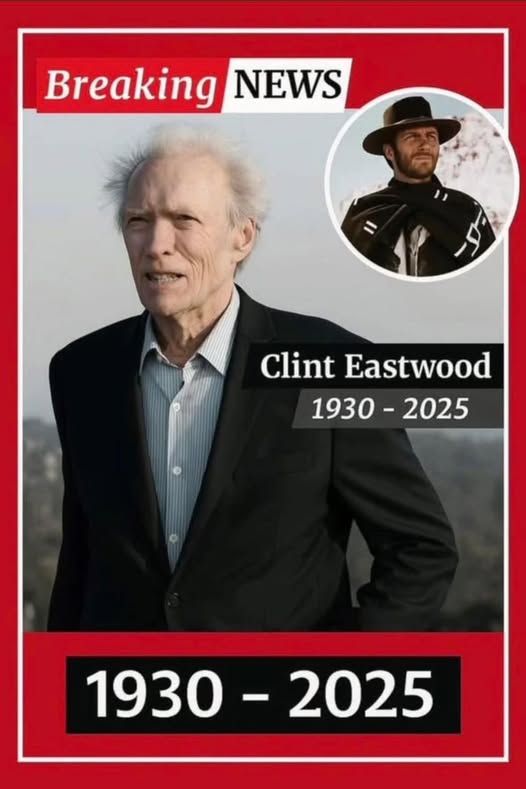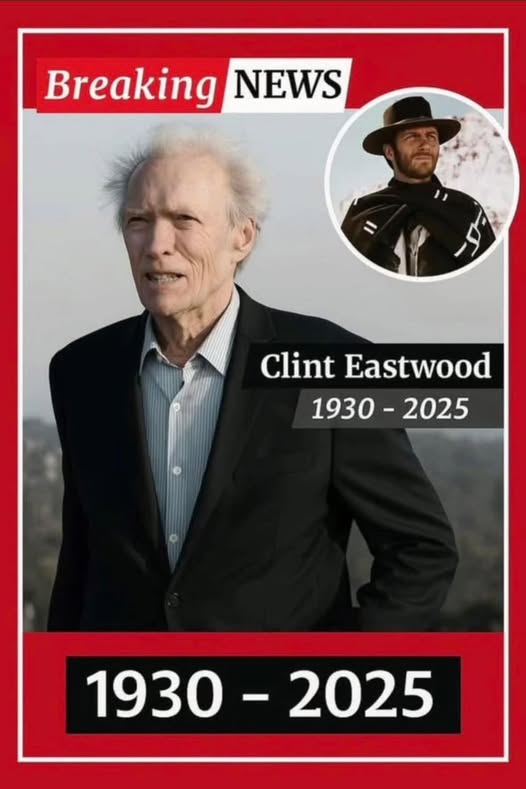At 94 years old, Clint Eastwood remains one of the most enduring legends in the history of Hollywood, a man whose shadow stretches across generations of cinema. Known for his steely gaze and commanding presence in films like Gran Torino, Unforgiven, and Million Dollar Baby, Eastwood has defined what it means to be both a movie star and a masterful director. Now, in what many believe to be his final bow, he returns to the screen and the director’s chair with Juror No. 2, a film already being hailed as the capstone to one of the greatest careers the industry has ever seen.
His career is nothing short of monumental. Rising to fame in the 1960s with Sergio Leone’s Dollars Trilogy, Eastwood became the face of the American Western, the gunslinger whose silence spoke louder than a thousand words. By the 1970s, he had cemented himself as an icon with his portrayal of Harry Callahan in Dirty Harry, a character who embodied both the grit and the contradictions of his era. Yet Eastwood’s true genius emerged not only in acting but in directing. His transition behind the camera revealed a storyteller of immense depth and sensitivity, one who earned Academy Awards for Unforgiven in 1992 and Million Dollar Baby in 2004.

Even as the years advanced, Eastwood never slowed. Well into his 80s and 90s, while most of his contemporaries had long since retired, he continued to create. The Mule (2018) and Cry Macho (2021) showed audiences that his passion for storytelling remained undimmed. Each film carried his signature themes—justice, redemption, the quiet struggles of ordinary men—echoing the voice of a filmmaker who has never been afraid to confront the complexity of human nature.
Now comes Juror No. 2, a story steeped in moral ambiguity and tension, the kind of narrative Eastwood has always excelled at. The film follows a juror who, in the midst of a murder trial, realizes that he may himself have played a role in the crime. With that knowledge comes an impossible choice: confess and destroy his own life, or manipulate the proceedings to protect himself. It is a tale of guilt and conscience, of truth and deception, crafted in the stark, deliberate style that Eastwood has mastered over decades.
The cast reflects Eastwood’s instinct for blending seasoned performers with rising stars. Nicholas Hoult, known for The Favourite and Mad Max: Fury Road, takes on the central role of the conflicted juror, while the brilliant Toni Collette brings her trademark intensity to a pivotal supporting part. Zoey Deutch and Kiefer Sutherland round out the ensemble, ensuring that the film will carry both the freshness of new talent and the gravitas of experience.
Production of Juror No. 2 was not without hurdles. Filming began in 2023 but was stalled by the Hollywood strikes that shook the industry. Once the disputes were resolved, Eastwood and his cast returned to set, completing principal photography in early 2024. As of mid-2025, the film is in post-production, with an expected release sometime in late 2025 or early 2026. The anticipation is already building to a fever pitch, for audiences know this may be their last chance to witness new work from Eastwood.
Speculation continues to swirl about whether this truly is his final film. Though Eastwood himself has not explicitly declared it so, many close to him believe Juror No. 2 will mark his farewell. At 94, he remains remarkably sharp, recently saying that he feels he has “more experience than ever” and continues to burn with the desire to tell stories. Still, even legends must eventually lay down their tools, and this project carries the weight of finality.
Rumors about Eastwood’s health have circulated for years, often fed by social media’s appetite for sensationalism. False reports of illness or even death have surfaced, only to be debunked time and again. The truth is simpler and far more powerful: Clint Eastwood celebrated his 94th birthday in May 2024, continues to live fully, and remains active in public life. His very involvement in Juror No. 2 is the clearest proof that he is still here, still working, still creating.
The legacy he leaves behind is immense. As an actor, he was the silent gunslinger, the lone lawman, the man whose presence defined an entire genre. As a director, he became a philosopher of cinema, dissecting themes of justice, morality, loss, and redemption with a steady, uncompromising hand. Few filmmakers have maintained relevance for as long or with as much dignity.
If Juror No. 2 is indeed his final act, it is fitting. The story’s focus on guilt and moral reckoning mirrors Eastwood’s lifelong fascination with the shadows that haunt the human spirit. His career has always been about more than entertainment; it has been about asking audiences to confront uncomfortable truths.
For six decades, Clint Eastwood has been both myth and man, a figure larger than life yet grounded in the quiet simplicity of storytelling. He has nothing left to prove—over 30 films directed, more than 70 acting credits, countless awards, and, most importantly, generations of audiences forever shaped by his work. Yet with Juror No. 2, he offers one more gift, one more story, one more reminder of why his name will forever be etched into the heart of cinema.
Clint Eastwood’s journey is nearing its close, but his legacy will never fade. Whether this is his last film or simply his latest, the world waits with bated breath, ready to witness once again the artistry of a man who has defined an era and who, even at 94, continues to prove that true legends never stop telling stories.


